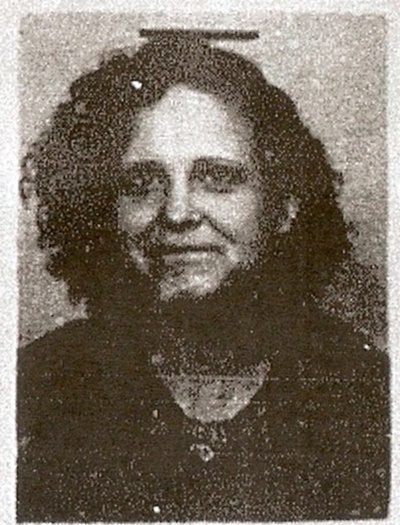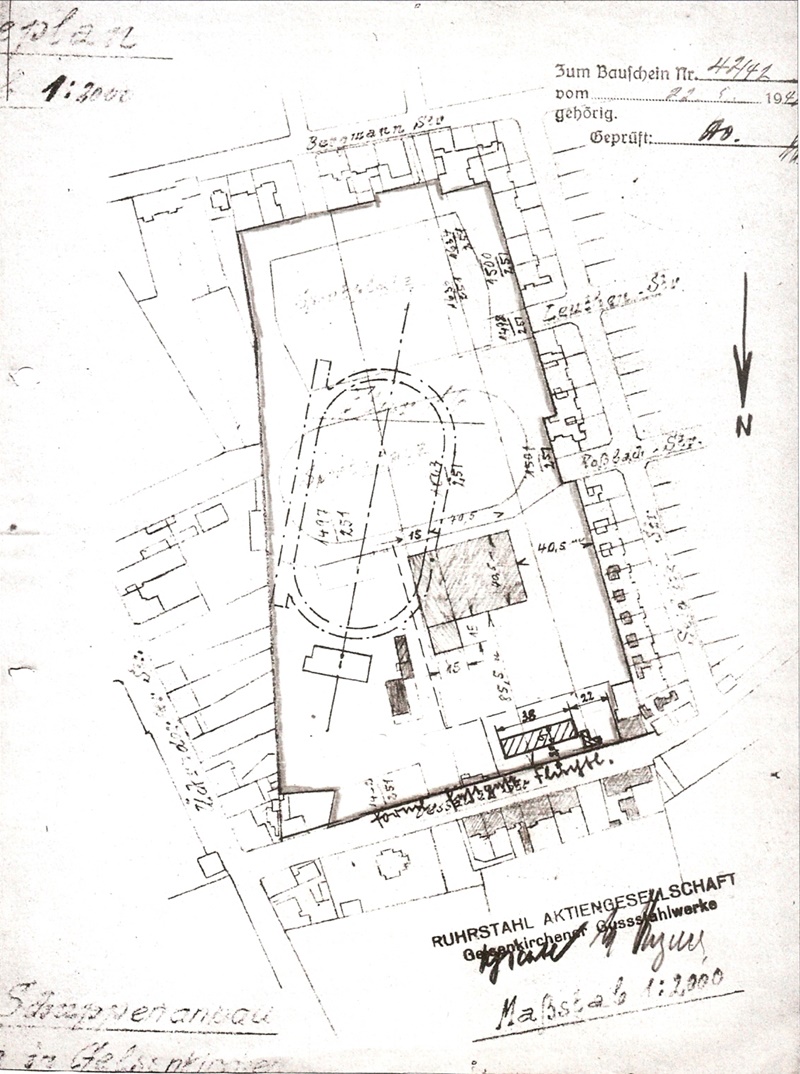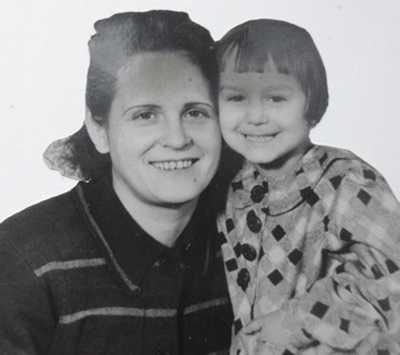
Fig. 1: Vera Nikitichna Polyakova circa 1943 (image source: index of derogatively called „ Ostarbeiter“, forced workers coming from Eastern Europe)
In autumn 1942 the accountant Vera Nikitichna Polyakova was 24 years of age when she was forcibly displaced from Nowotscherkassk (located 30 km northeast of Rostow on Don) to Nazi Germany for the purpose of fatigue duty.
By means of the rudimentary written records in the archive of the Russian KGB (FSB in contemporary terms = Russian Intelligence Service) in alignment with the documents concerning her identity filed in the administration office of the International Tracing Service, Bad Arolsen, it can be said that Vera Polyakova, born on 9th September, 1918 in Rostow on Don was barracked in the camp of Löhne as of 4th October, 1942. She was ordered to work in the furniture factory W. Budde in Löhne as a forced labourer. There is a sick note dated 26h October, 1942 on her membershipcard of the health insurance fund: „ulcer on lower leg“.
In the meantime, she had been transported to Gelsenkirchen; her name is on a list of female forced labourers who were exploited in the Ruhrstahl AG, Gelsenkirchener Gußstahlwerke (a cast steel mill). The indicated „period of employment“ started on 18th September, 1943 and ended on 8th November, 1943. This information is congruent with the entry on her file card in the so-called „Ostarbeiter“ file. During this period of time she was quartered in a labour force camp in the Ruhrstahl AG in Dessauerstrasse 72.

Fig. 2 : „Ostarbeiterkartei“ - → file card Vera Polyakova. Addition in handriting on the rear: fugitive since 08.11.43.
The camp located in Dessauerstrasse 72 was one of altogether 10 camps of the Ruhrstahl AG and was built in the first half of 1942 on the site where to this day you can find a sports field. As per original building plan of 05th January, 1942 this area was to be used for the „accommodation of 96 workers“. Apart from accommodation facilities on the factory premises all other camps of the Ruhrstahl AG were located in ballrooms of inns – all records being lost.

Fig. 3: Floor plan regarding the building application for the erection of a forced labour camp in Dessauerstraße 72, Gelsenkirchen
Very soon, her escape was put to an end and she had to work again in the cast steel mill for a short time. There she had to witness the suicide of a friend of hers who had also worked in that mill as a forced labourer who could no longer stand hunger and ordeal and threw herself into one of the furnaces. This terrible experience among other things never let go of Vera Polyakova's mind.
According to the records of the UFSB Vera Polyakova was deployed in a leather factory in Gelsenkirchen as a forced labourer between December 1943 and April 1945. To this day, this indication could not be verified. It was in this leather factory (author`s note: this might have been the forced labourers' camp of the OTA Schlesische Schuhwerke Ottmuth AG, Schalker Strasse 30) that she must have met the French forced worker who became the father of her daughter. On 12th April, 1945 Vera Polyakova was freed by American forces and was at first detained in a camp for displaced persons in Brunswick, then she was transferred by the Americans to the Soviet troops in Frankfurt/Oder. After her detention in a special camp („Speziallager“) of the NKWD – forced labourers that had forcibly been displaced to Germany were considered as alleged traitors in their Russian country of origin – she could finally return to her home country. The exact time of her return to her hometown Rostow is specified as the 18th July, 1945.
IN SEARCH OF THE UNKNOWN GRANDFATHER
Although there was practically no privacy in the camps people fell in love and there were love relationships. These were strictly forbidden and drastically penalized.

Fig. 4:Vera Polyakova with her daughter Zhenya. The picture was taken shortly before Vera's tragic
death
On her return Vera Polyakova was 6 months pregnant. Her daughter Zheny Polyakova was born in Rostow on Don on 18th October, 1945. To this date the name of her father is still missing in her birth certificate. In 1950 Vera Nikitichna Polyakova committed suicide by implecation to deepest depressions resulting from the war, persecution and the pressure exerted in the Soviet Union upon female forced workers displaced from the East. She took the name of her daughter's father with her as a secret when she died. In 2020 a „stumble stone“ will be installed in Dessauer Strasse in memory of Vera Polyakova.
Her granddaughter Elena Gruzinova writes in a letter to us : „On 18th October, 2015 my mother Evgenia Alexandrovna Leshchenko (née Polyakova) turned 70 years. Sitting at the dinner table decorated for her birthday she all of a sudden remembered her childhood in wayback postwar times. For the first time in my life I heard fragmented details about her father, a French forced worker, whom her mother had met in Gelsenkirchen and with whom she had fallen in love. He knew of her pregnancy, and they made plans for their common future after their liberation. The French labourer without name wanted to marry Vera Polyakova and live with her in France. But by a twist of fate the liberation from slavery separated the lovers. My grandmother never recovered from this blow and consequently suffered from grave depressions. In the end she committed suicide. We were able to find out quite a few details about my grandmother's life, but there is one unanswered question:
Who was my grandfather? It seems rather impossible to find the answer after such a long time, but we have not abandoned hope.“
Our special thanks go to Elena Gruzinova and Vladimir Gruzinov, who have called our attention to the life and the ordeal of Vera Polyakova and who have given their consent to this documentation.

 Translation Claudia Thul, Febrary 2019 Translation Claudia Thul, Febrary 2019
| ↑ Top
|
|